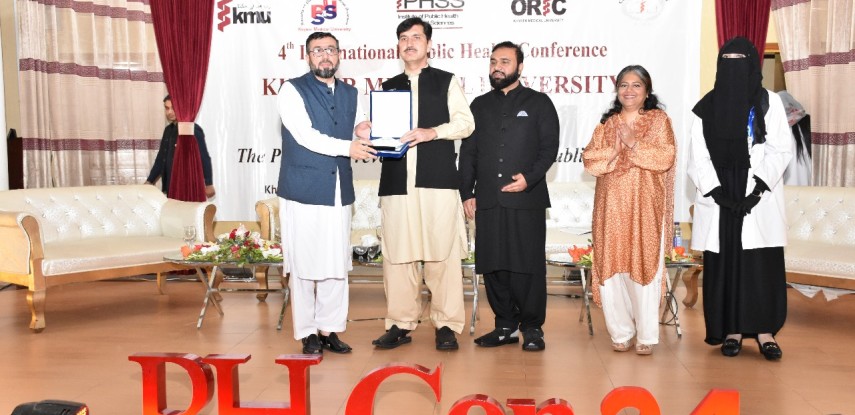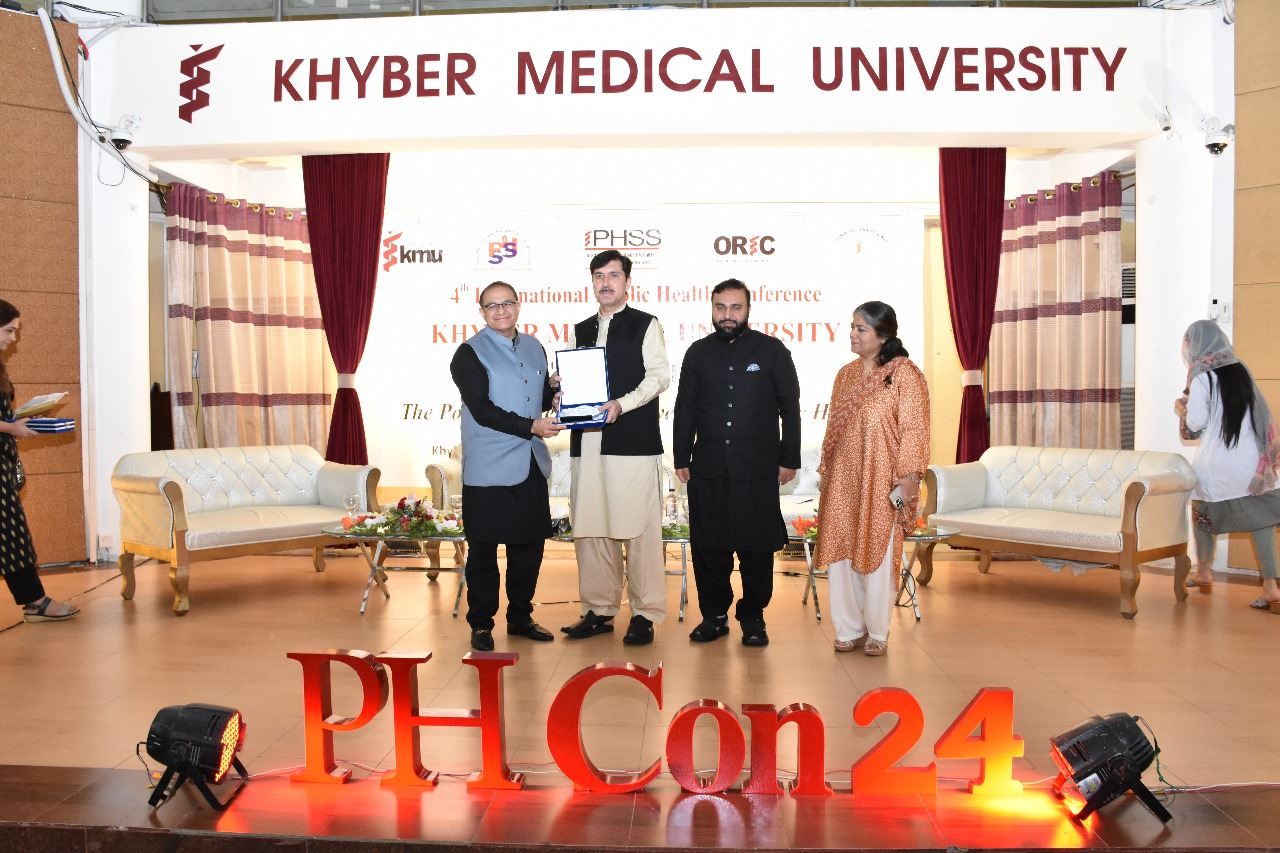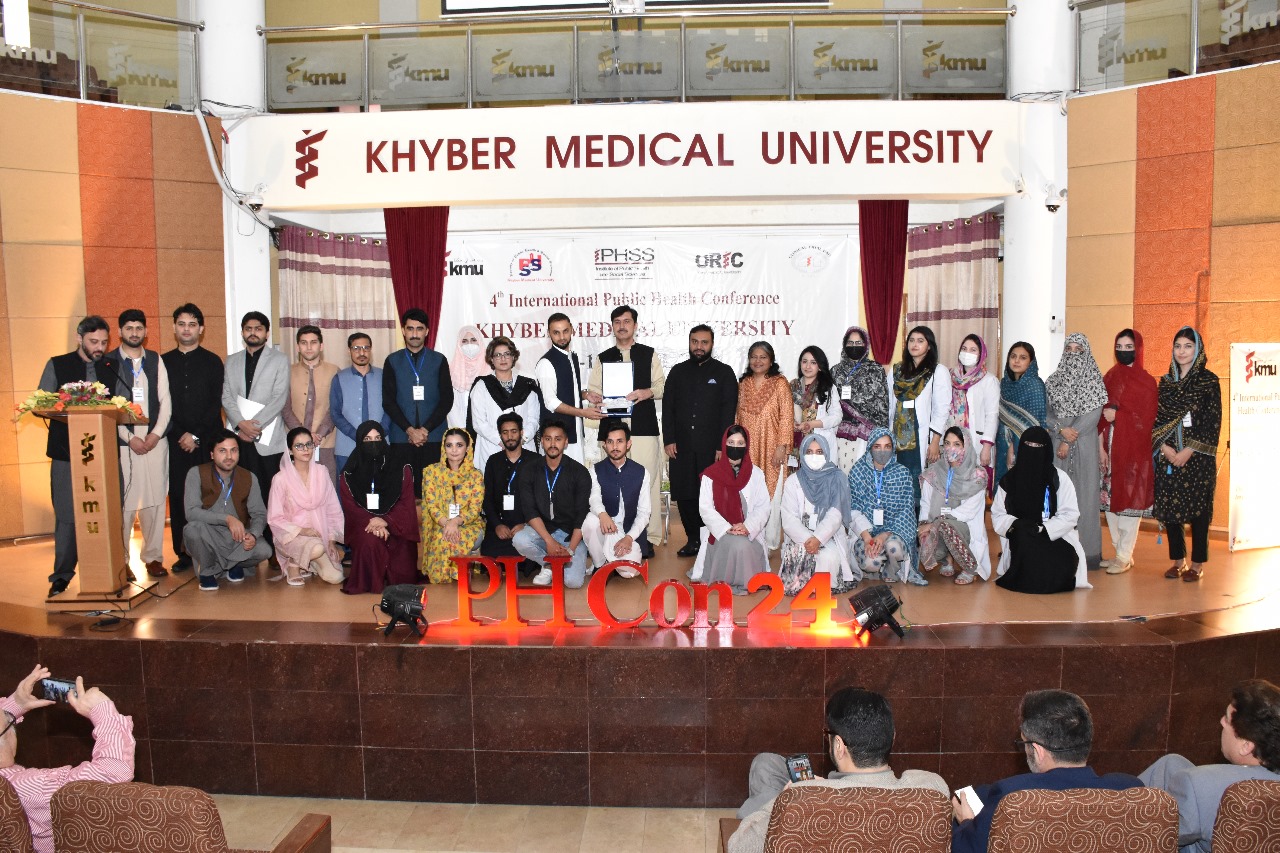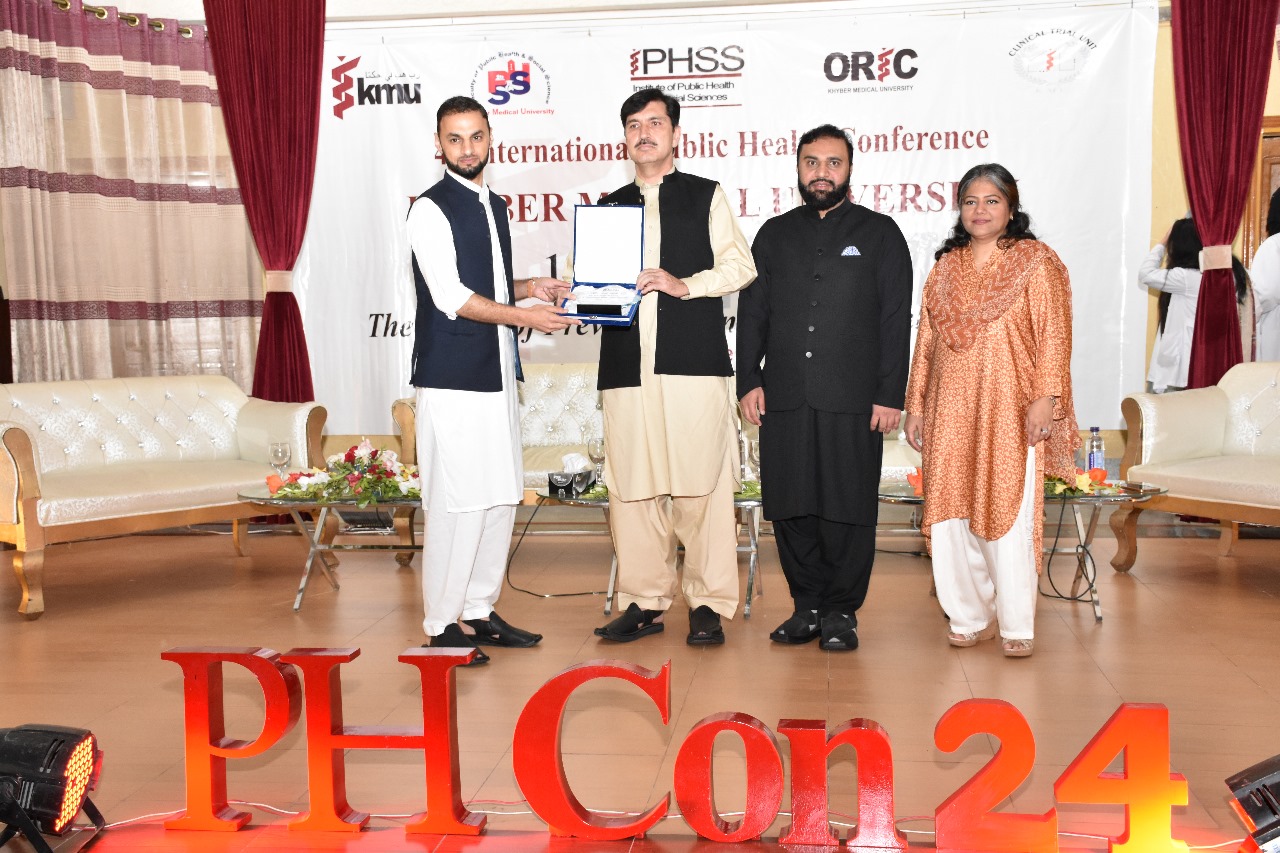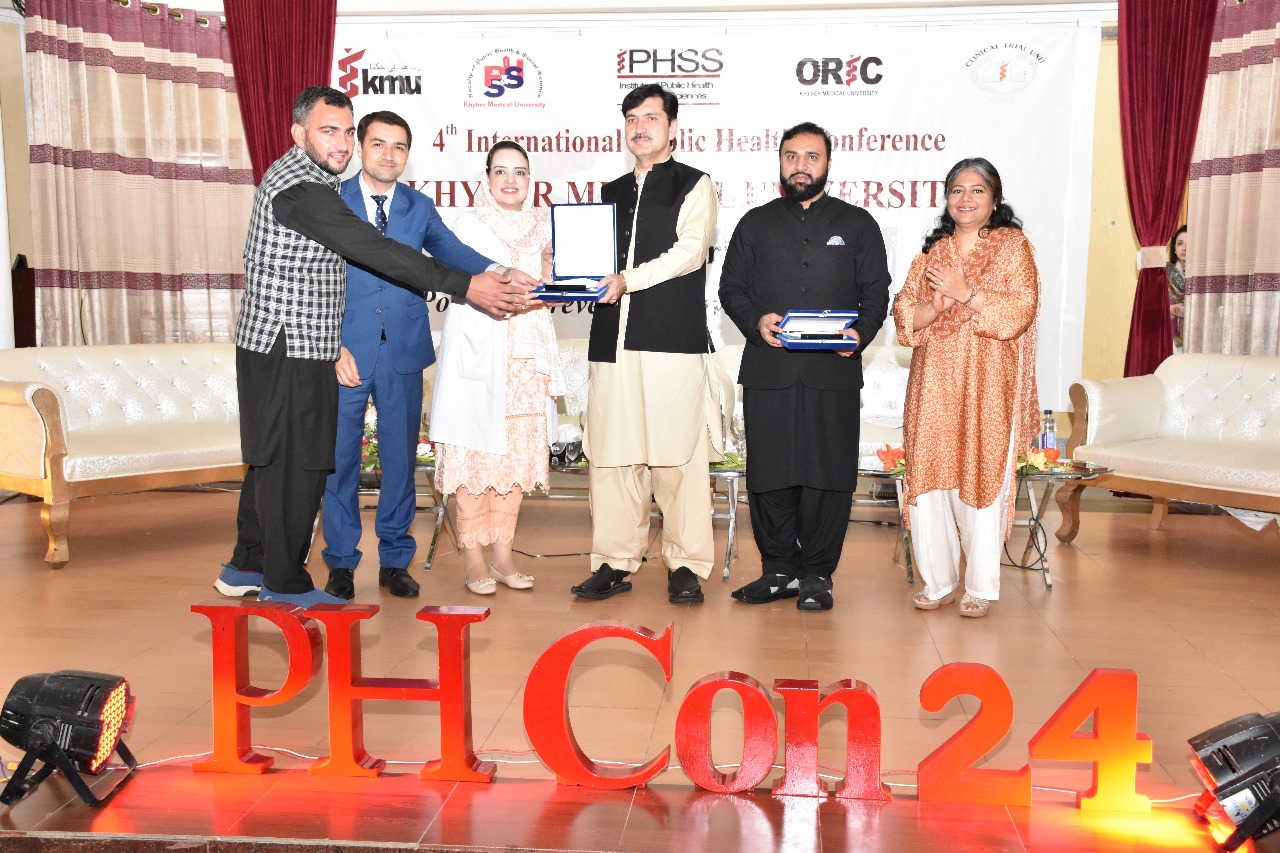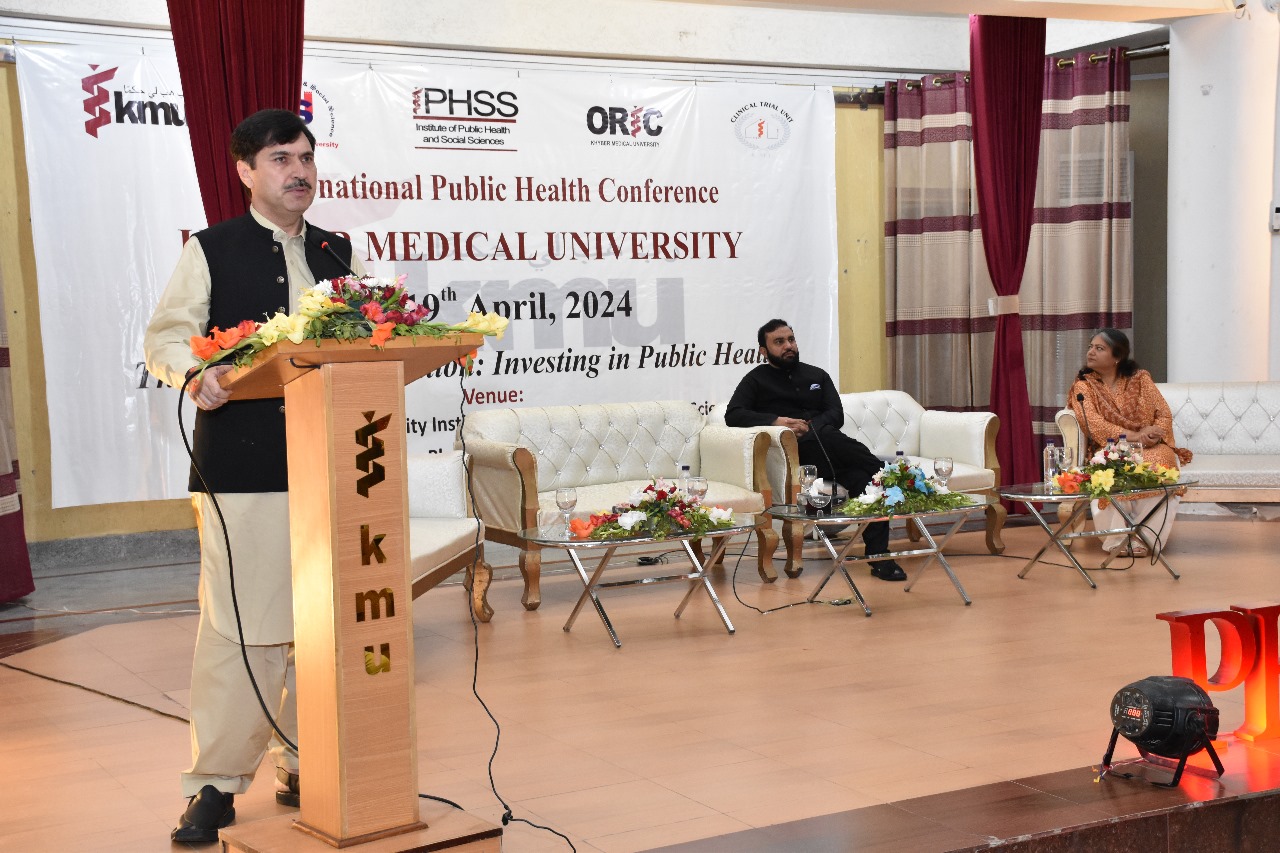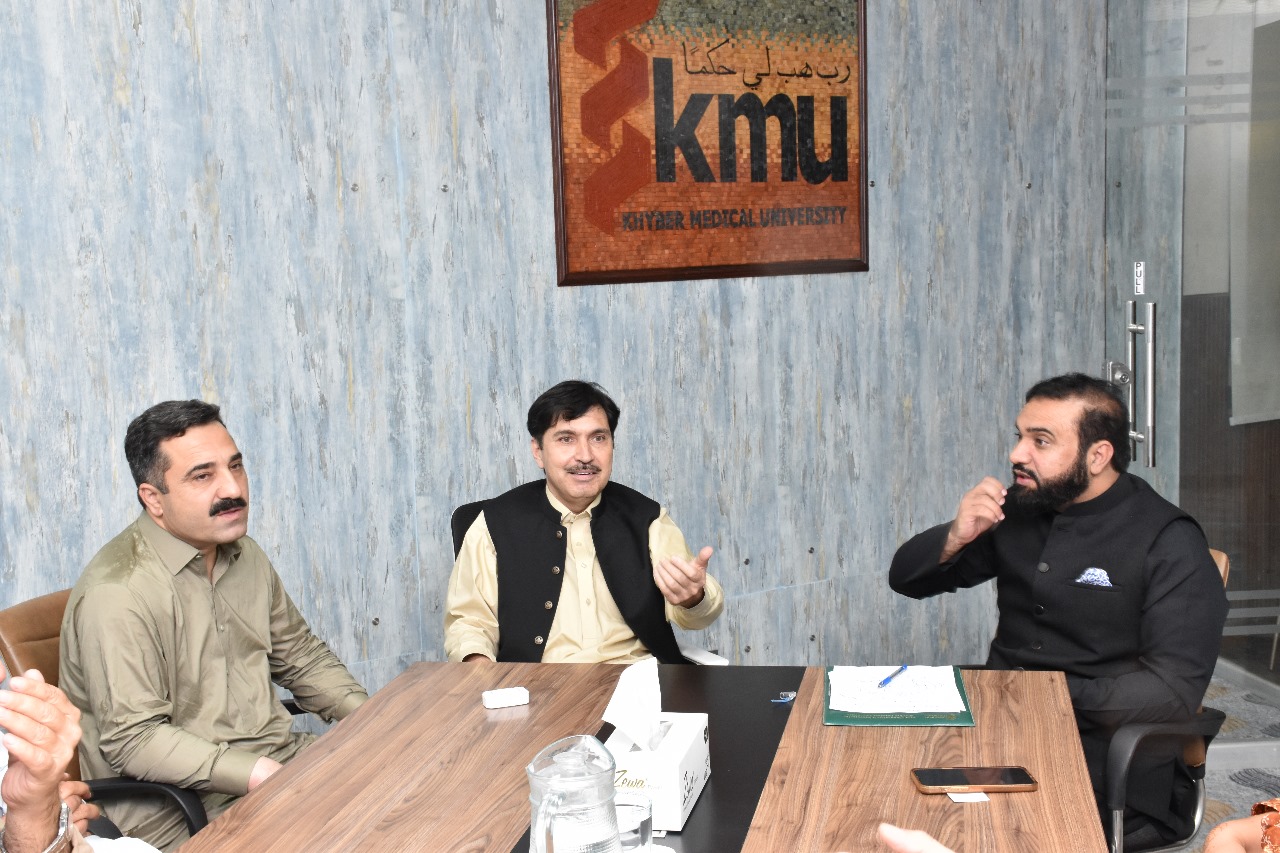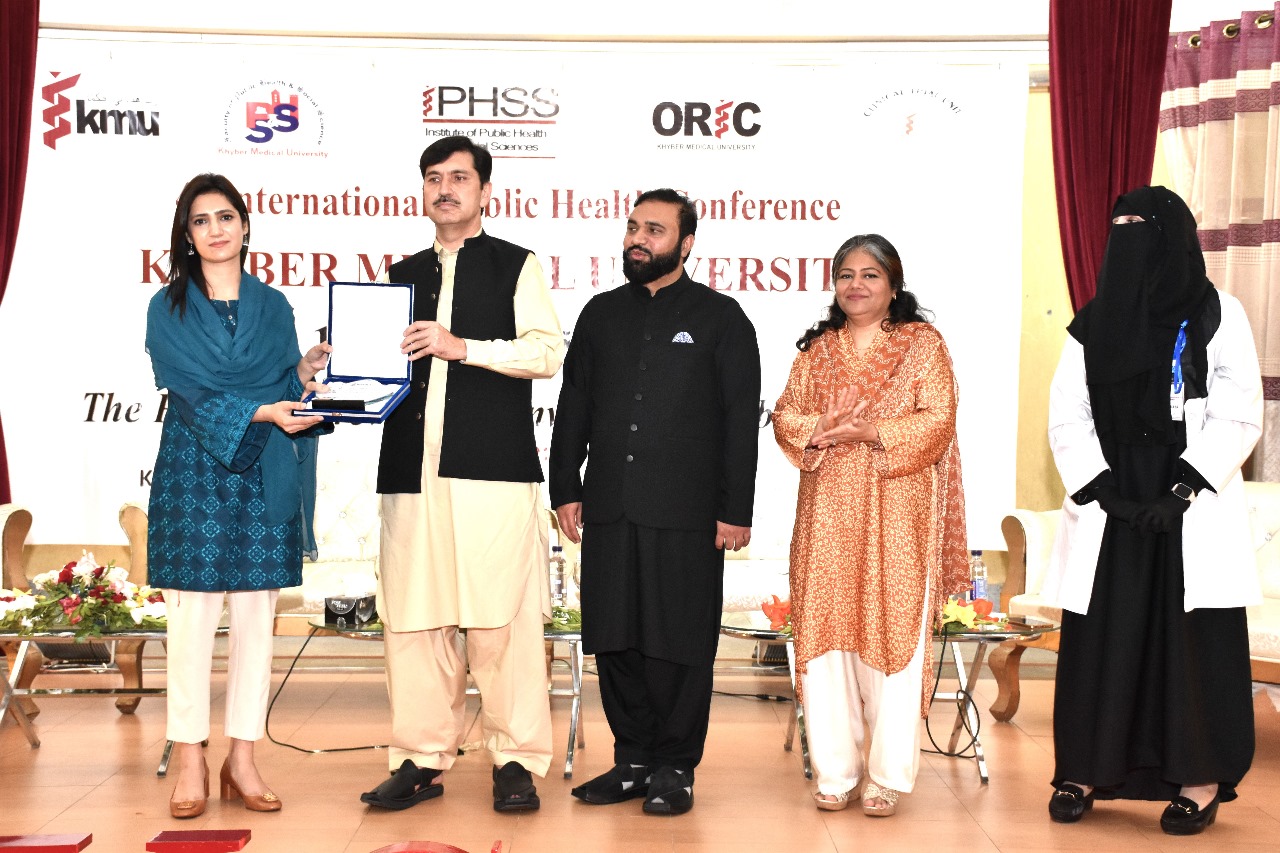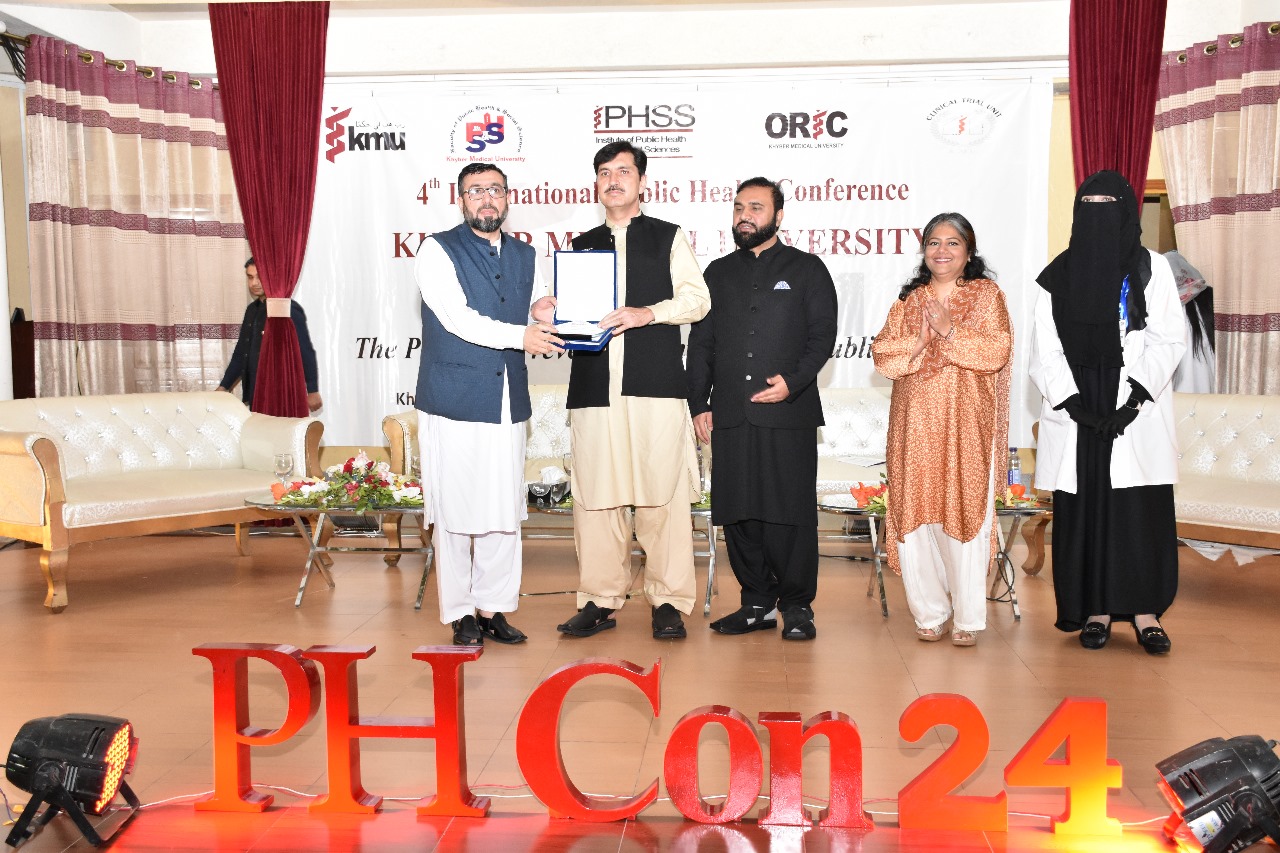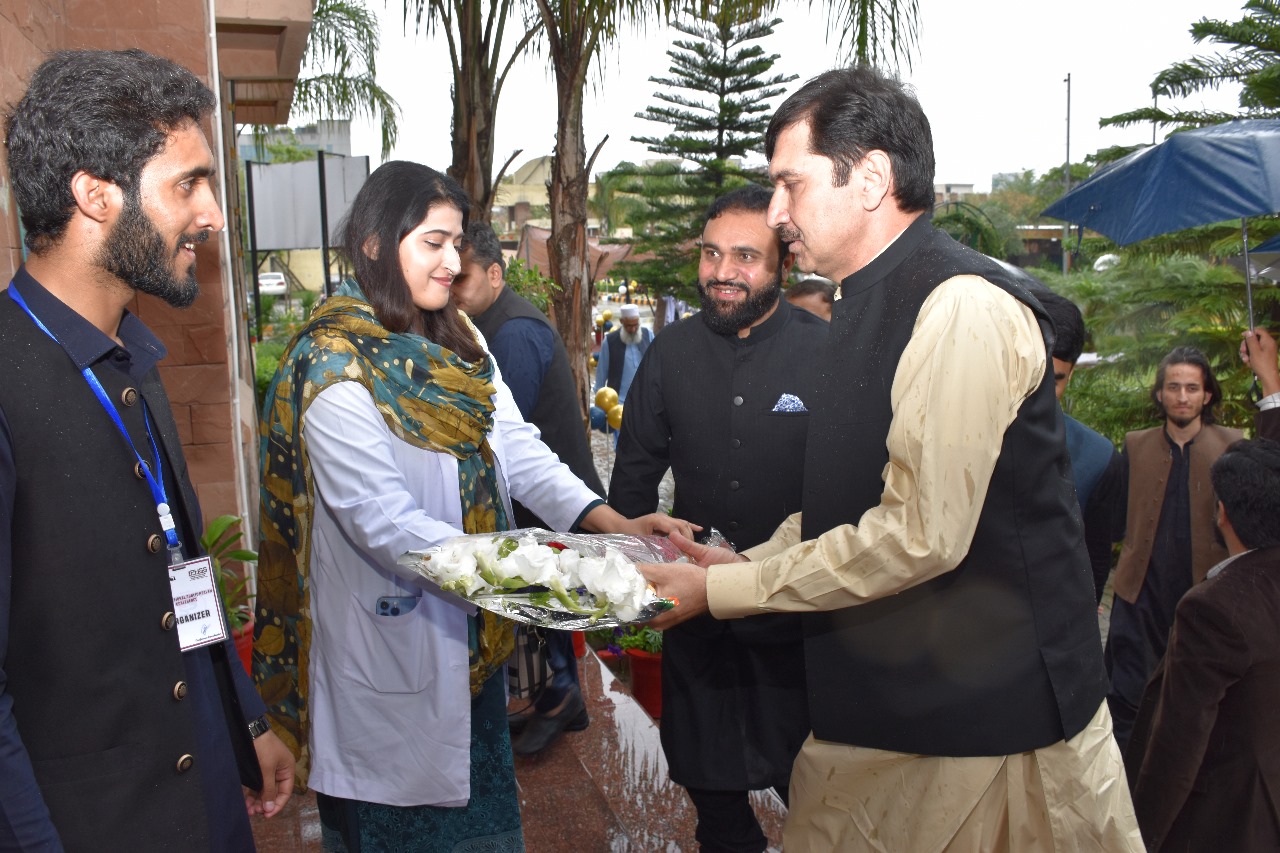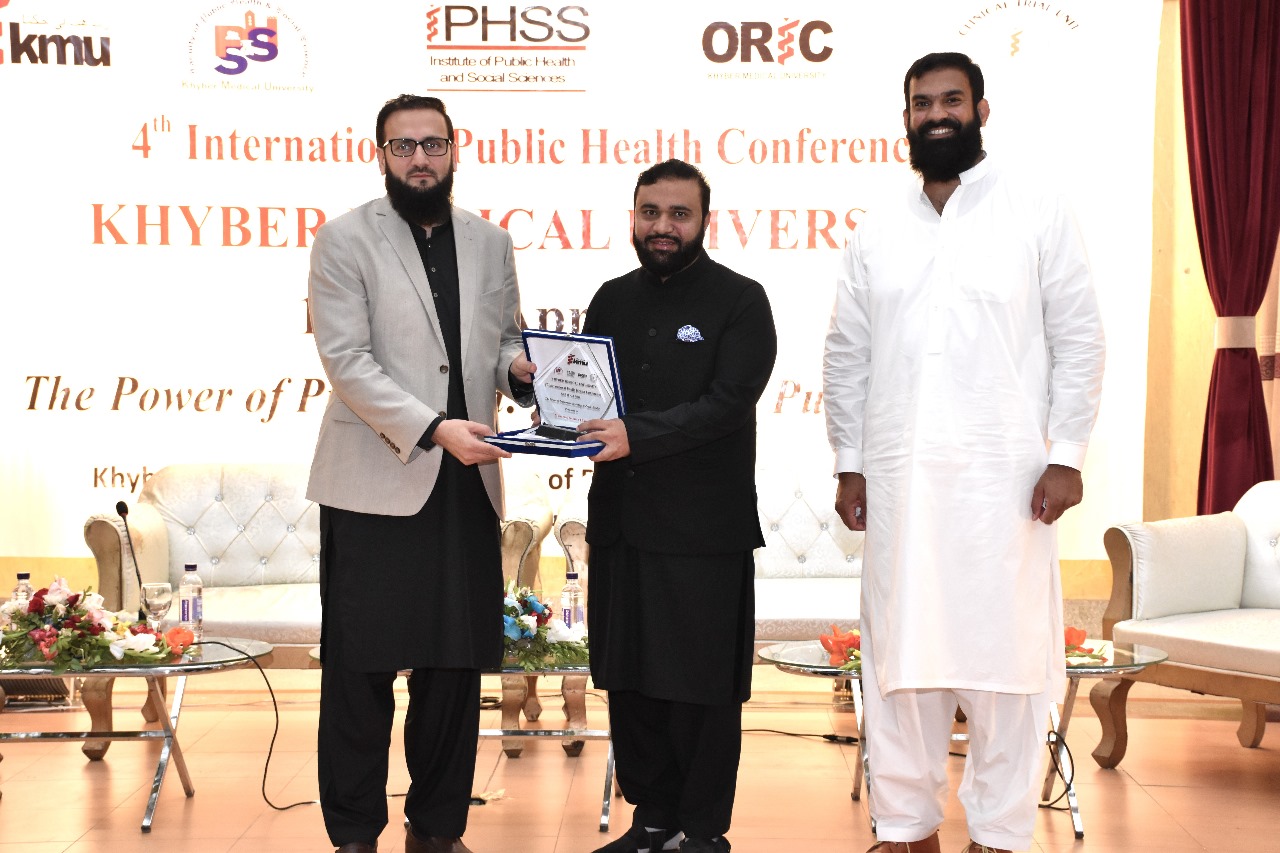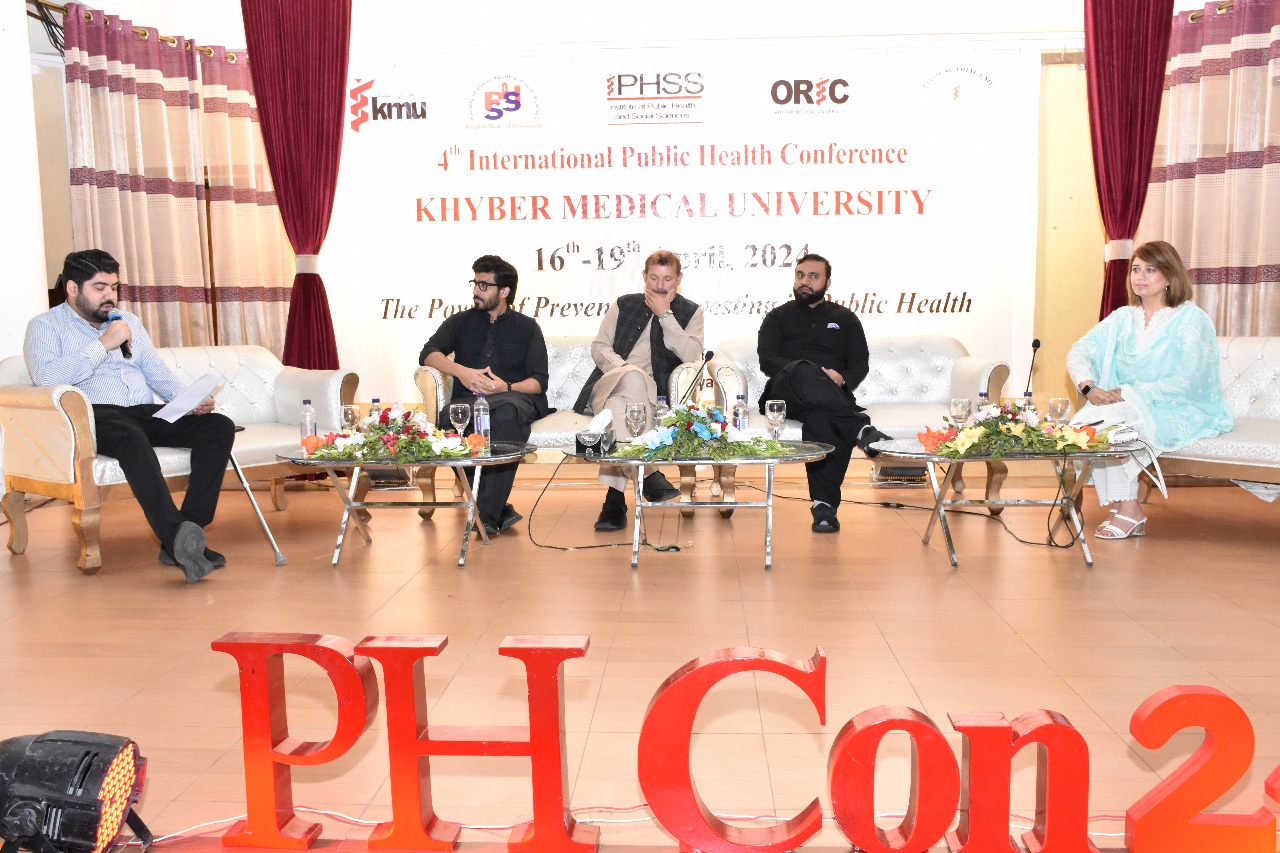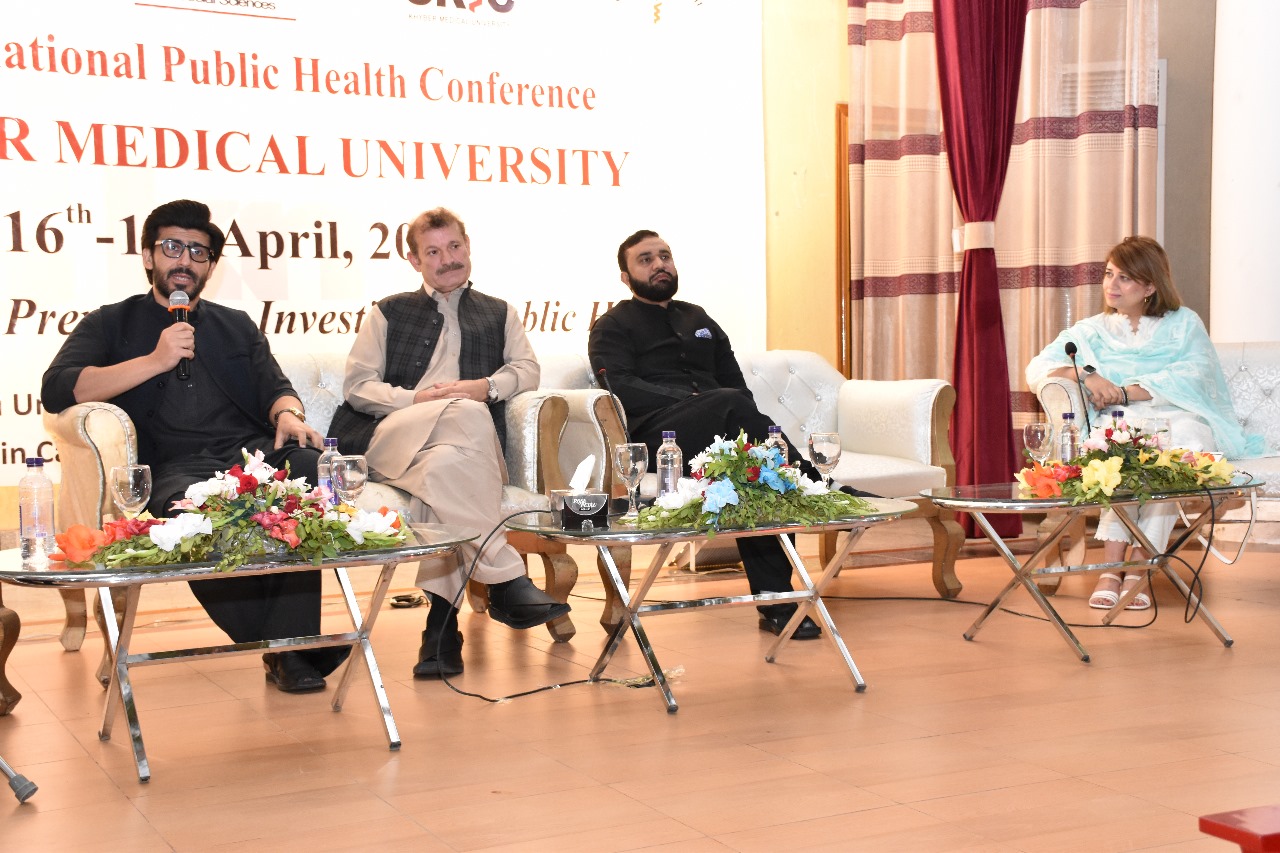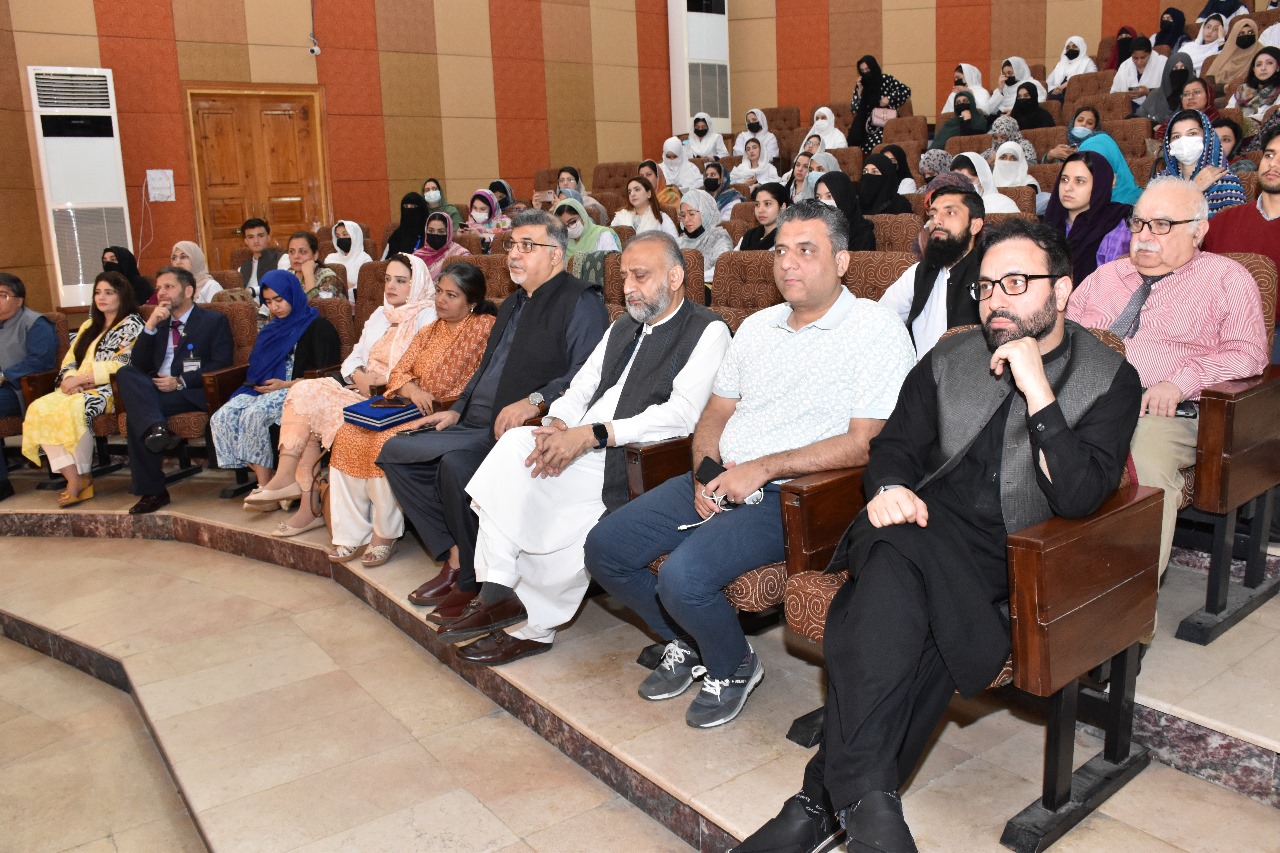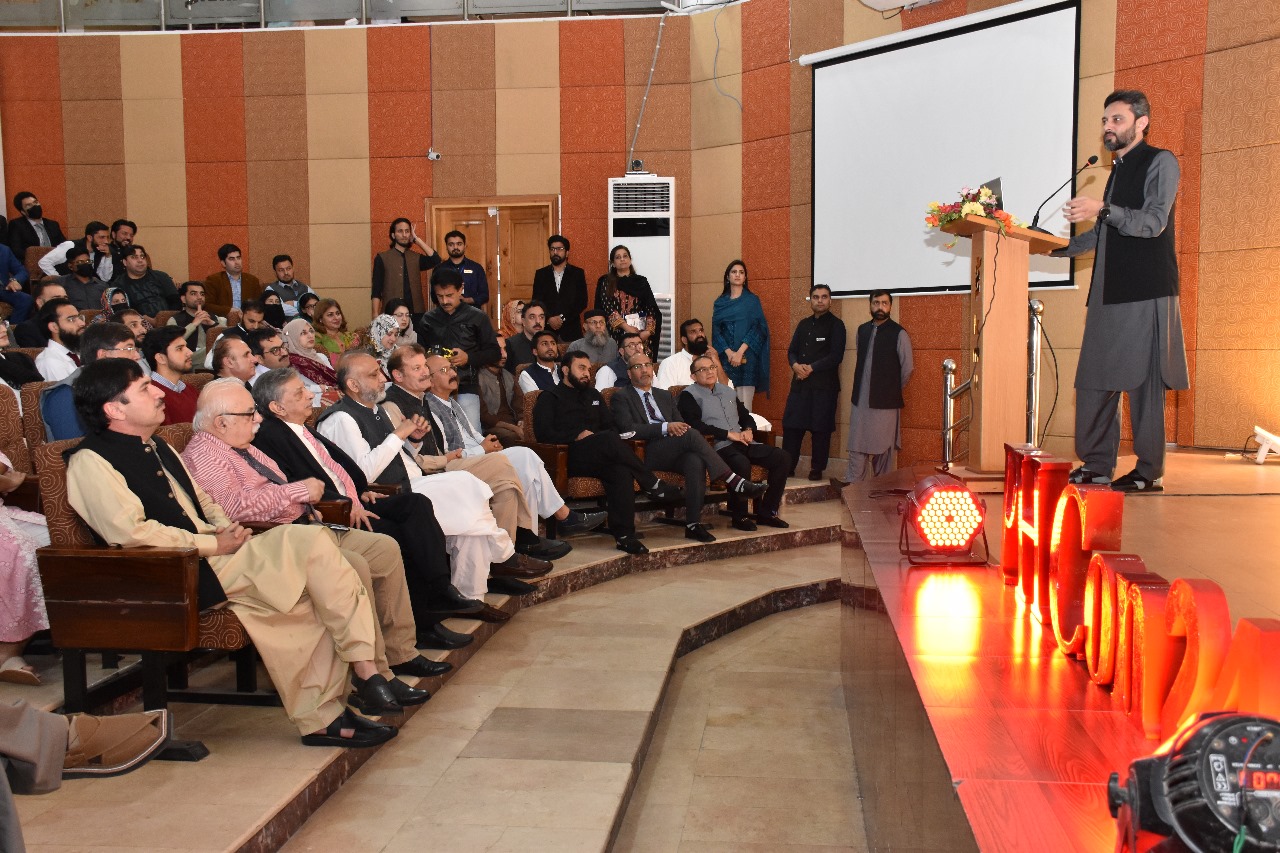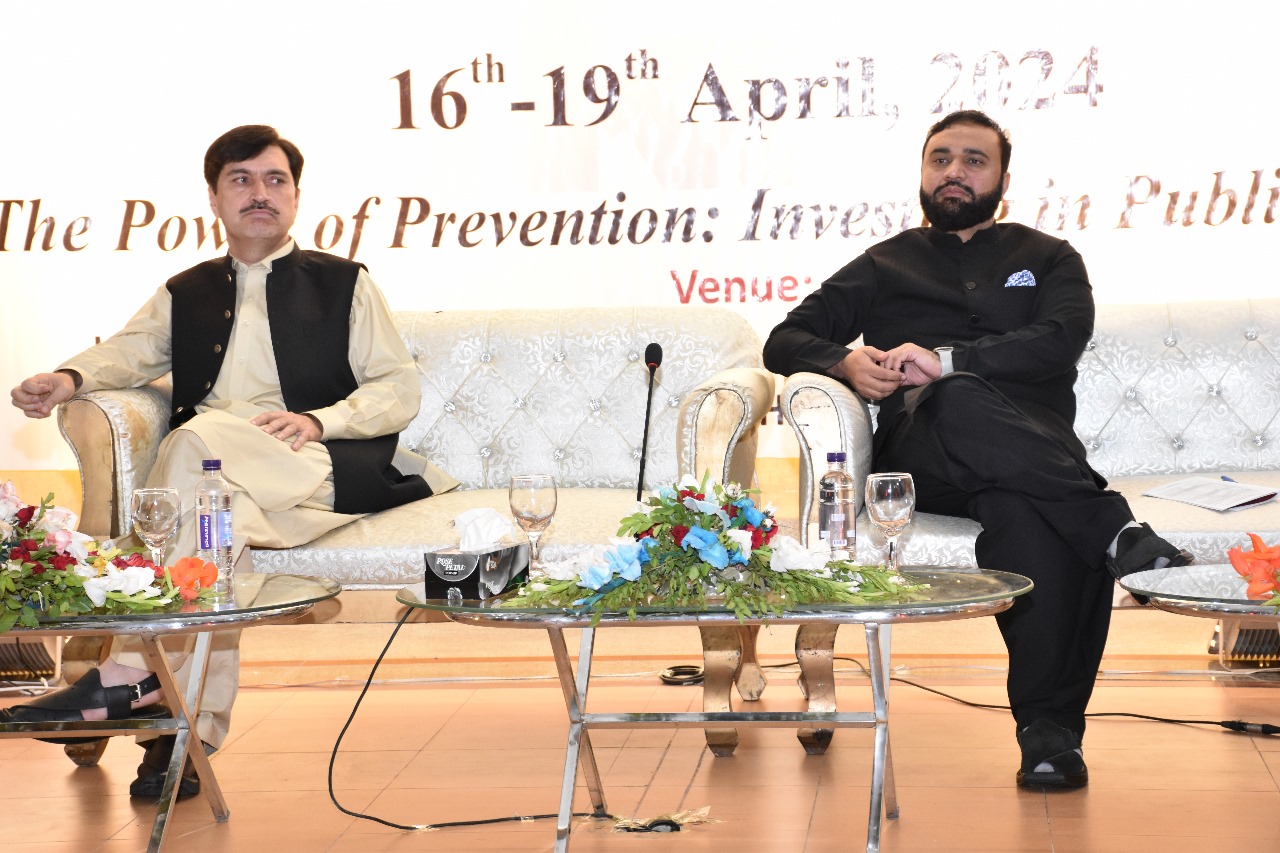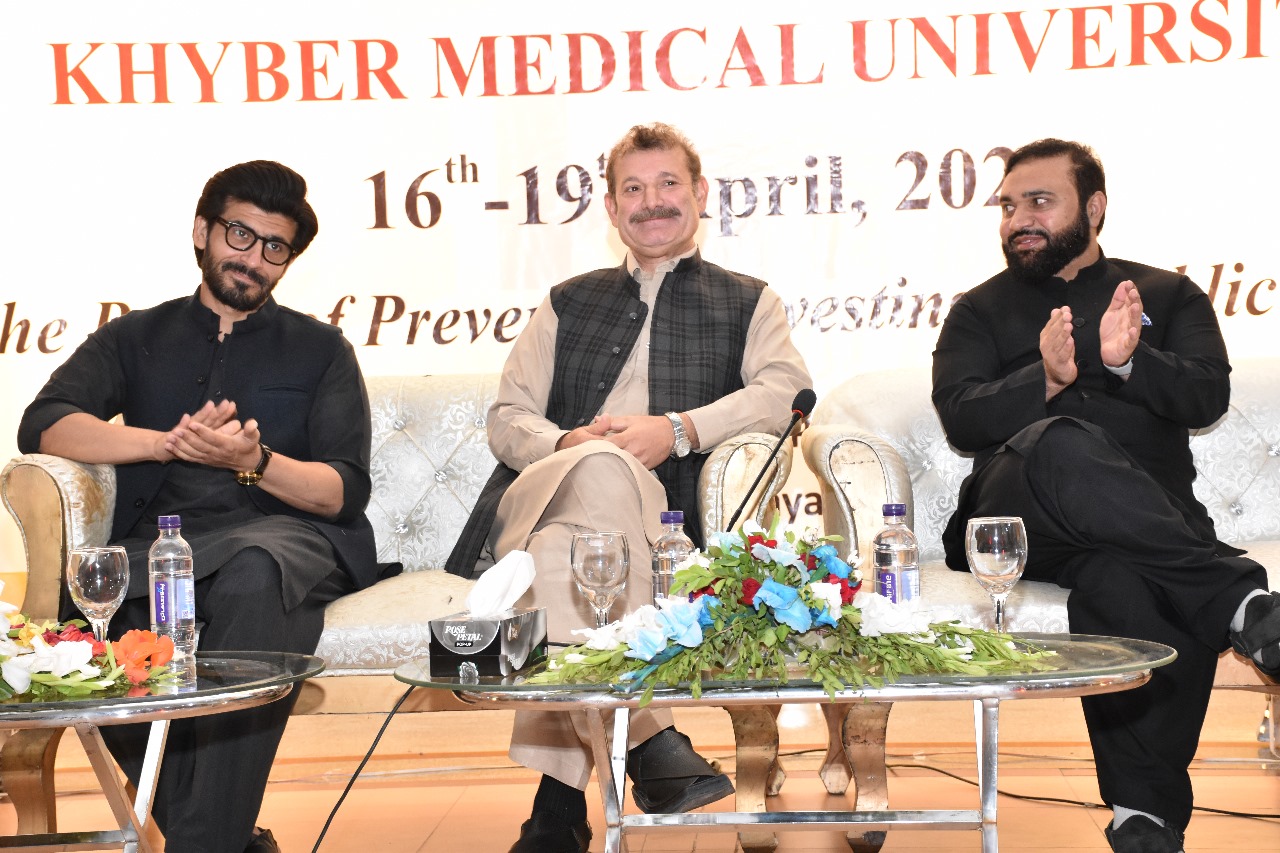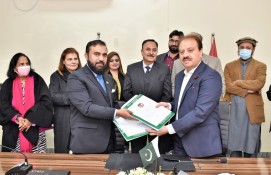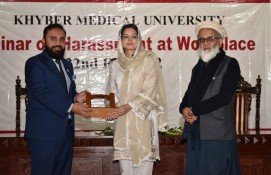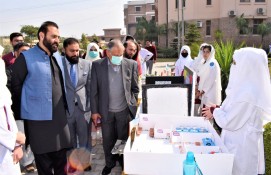The 4th International Public Health Conference, hosted by KMU, concluded
-
-
Event Date:
Friday, 19 April 2024
-
Published on:
Sunday, 21 April 2024
The 4th International Public Health Conference, hosted by Khyber Medical University (KMU), concluded on April 19th, 2024, marking the culmination of a day filled with insightful sessions and productive discussions. With the theme "The Power of Prevention: Investing in Public Health," the conference served as a platform for experts to explore innovative approaches to healthcare.
The plenary sessions included NCDs, Family practice approach, primary healthcare, Communicable diseases, Tobacco Control, Dental Public health, Climate change, AI in healthcare, Health Informatics and economics, and Mental Health. National and International Public health experts emphasise investing in primary healthcare and implementing a family practice approach model to tackle the double disease burden. They highlighted the critical importance of collaboration between governmental bodies, academia, and healthcare professionals in advancing public health initiatives and safeguarding the well-being of communities.
The Discussions revolved around the transformative role of Artificial Intelligence in healthcare and the nuanced utilization of electronic health data in Biomedical and Health Informatics.
Subsequent sessions delved into health economics, with a panel addressing macroeconomic challenges and strategies for sustaining healthcare initiatives, such as the Sehat Sahulat Programme. The proposal of a threshold system involving co-payments from the middle-class populace of Khyber Pakhtunkhwa province was among the strategies discussed.
A significant announcement was made regarding the launch of a diploma programme in health finance by the Vice Chancellor of Khyber Medical University, aiming to equip policymakers and health experts with the necessary skills to address evolving health needs amidst resource constraints. He also announced that KMU will establish and lead Non-communicable disease centres across KP focusing on health promotion and preventive strategies including lifestyle modification.
During the closing ceremony, Mr. Mehmood Aslam, Provincial Secretary of Health for Khyber Pakhtunkhwa, emphasized the urgent need to prioritize investments in addressing non-communicable diseases, citing alarming statistics on diabetes and hypertension. He recognised the outstanding contributions of Prof Zia Ul Haq, VC KMU and his team. He also urged the faculty of public health to draft a strategy for tackling the NCDs burden in KP and offered his support in establishing the NCD centres.
This conference provided a valuable platform for exchanging ideas, sharing research findings, and exploring innovative approaches to pressing public health challenges.
Based on the discussions and presentations at the conference, Several key recommendations and actionable insights were highlighted:
Integrated Approach to NCD Control: Emphasize the importance of a multi-sectoral and integrated approach to non-communicable disease (NCD) control, including effective prevention strategies, early detection, and comprehensive management. Collaboration between healthcare providers, policymakers, and community organizations is essential for addressing the growing burden of NCDs.
Strengthening Tobacco Control Efforts: Advocate for stronger tobacco control policies, including increased taxation, comprehensive bans on advertising and promotion, and enhanced cessation programs. It is crucial to prioritize tobacco control interventions to reduce the prevalence of tobacco use and its associated health consequences.
Addressing Mental Health Needs: Highlight the urgent need to integrate mental health services into primary care settings and promote mental health awareness and education. Enhancing access to mental health services and reducing stigma are critical components of improving mental health outcomes.
Promoting Family Medicine and Primary Care: Support the role of family medicine in delivering comprehensive, patient-centered care and strengthening primary care systems. Invest in training and capacity-building for primary care providers to enhance their ability to manage a wide range of health issues within the community.
Harnessing AI and Health Informatics: Explore opportunities to leverage artificial intelligence (AI) and health informatics to enhance disease surveillance, predictive modelling, and personalized healthcare interventions. Foster collaborations between healthcare professionals and technology experts to develop innovative AI-driven solutions.
Advancing Health Informatics: Invest in health informatics infrastructure and capacity-building to improve data collection, analysis, and decision-making processes. Develop standardized protocols for data sharing and interoperability to support evidence-based public health initiatives.
Policy Advocacy and Implementation: Advocate for evidence-based policies and interventions derived from research presented at the conference. Engage policymakers and stakeholders to prioritize public health agendas and allocate resources effectively.
Continued Collaboration and Knowledge Exchange: Encourage ongoing collaboration among researchers, practitioners, policymakers, and community representatives to sustain momentum in addressing public health challenges. Facilitate knowledge exchange and learning from best practices across different regions and settings.
These recommendations reflect the collective efforts and insights shared during the conference and underscore the importance of sustained action to advance public health agendas globally.

